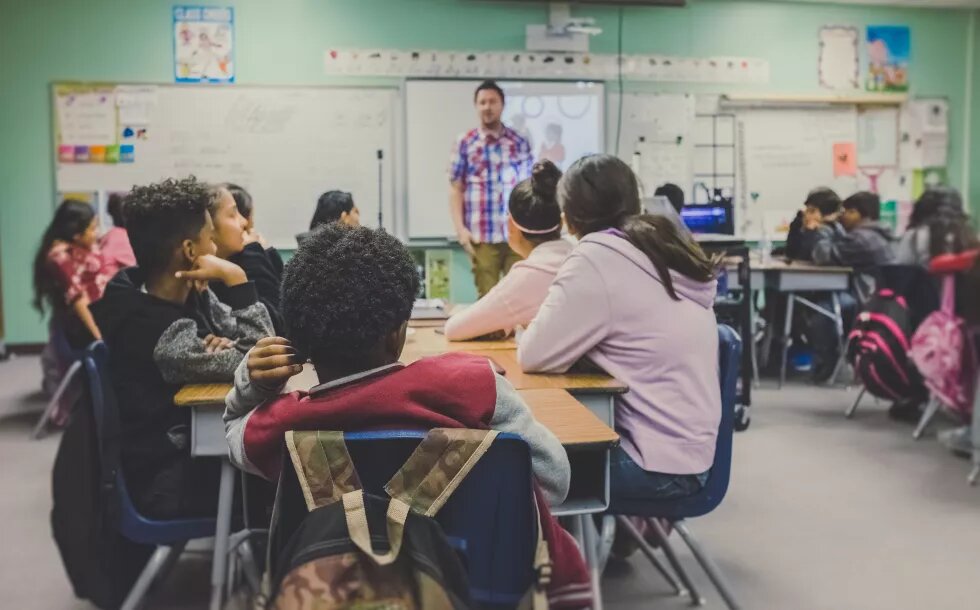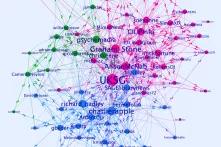In response to the challenge of misinformation online, Israel launched a digital media and information literacy (DMIL) education curriculum and made it available for schools nationwide. In its current form, the Israeli DMIL education curriculum is lacking. Policymakers should consider three additional prisms of the challenge, which call for complementary educational responses.

"Post-truth" conditions and rampant misinformation in the public sphere have provoked educational responses in many countries. To partly address this issue, policymakers at the Israel Ministry of Education have been promoting digital media and information literacy (DMIL) education in Israeli schools since 2011. While some experts have pointed to the problem that the implementation of DMIL in Israel is only partial, suggesting to "widen the scope of DMIL education within national curricula," the curriculum merits a close inspection also in terms of its conceptual framework. Research published in the scholarly journal Educational Psychologist points out that people employ diverse aims, ideals and processes when evaluating information and performing other knowledge-related tasks, and that these may contribute to the post-truth conditions in the first place. In its current form, the DMIL education curriculum in Israel focuses on just one of these approaches. To address the different ways by which individuals acquire knowledge, future reforms in this area should be informed by additional approaches as well, such as those that deal with students' motivations to seek out information and their ability to regulate their own performance at these tasks.
The Digital Media and Information Literacy Curriculum in Israel
In response to the challenge of misinformation online, Israel launched a DMIL education curriculum and made it available for schools nationwide. The curriculum's conceptual framework focuses on eight broad and partly overlapping themes:
- Technological Literacy (Coding and Robotics) – Includes skills such as creating simple computer programs and operating robots;
- Information Technology Literacy – Includes skills such as using browsers, word processors, and video conferencing software as well as a basic understanding of PC security, accessibility and ergonomics;
- Digital Media Literacy – Focuses on creating digital media such as infographics and blog posts as well as on developing a critical approach to online communication, especially from commercial sources;
- Collaborating in the Digital Environment – Focuses on interpersonal aspects of online communication, such as e-mail etiquette, and on skills such as composing collaborative documents;
- Social Media Literacy and Online Verbal Communication – Includes familiarity with social media sites, along with skills such as strategizing the writing and publication of posts and participating in discussions respectfully while making reasoned arguments;
- Digital Ethics and Safety in Online Environments – Focuses on self-protection from dangers, such as malware and phishing, and on awareness of laws and norms pertaining to online behavior, such as copyright law, privacy law and hate speech law;
- Information Literacy in the Digital Environment – Focuses on the ability to identify relevant information as needed, evaluate it critically, integrate it and present it in different ways, such as using informational posters and online presentations;
- Reading and Writing in the Digital Environment – Includes skills such as using a keyboard, sifting through text to find relevant information, and writing digital texts for different audiences.
To what extent does the conceptual framework of the curriculum address the challenges of the "post-truth" world?
There are at least two instances in which the DMIL education curriculum addresses the risks of online misinformation. In item 3 of the curriculum “Digital Media Literacy”, the importance of understanding the ways digital media can be manipulated to provoke strong emotions among intended audiences is mentioned, alerting students to account for the risk of being misinformed and manipulated online. In item 7, “Information Literacy in the Digital Environment”, the curriculum mandates that students evaluate online sources using features such as the domain name extension (such as .com, .org or .co.il), the date of publication, the author and the owners of the website, and – crucially – based on cross-checking the information with other sources. Recent civics education research supports this approach which is termed “lateral reading”.
Although alerting students of the risks of misinformation and providing supportive tools are important components of any attempt to address the challenges of the information disorder, they represent a narrow educational response to this challenge. This guidance rests on the assumption that people do not know how to critically engage with digital environments for not having developed a deep understanding of appropriate epistemic ideals (e.g., standards or criteria for evaluating whether a website is reliable) and of appropriate epistemic processes (procedures and strategies for this evaluation). As Sarit Barzilai and Clark Chinn write in the scholarly journal Educational Psychologist, this "reflects an optimistically rational view of human reasoning: Educators hope that once better epistemic ideals and processes are taught, students will be able and disposed to employ them." Educators should consider the different aims, ideals and processes of attaining knowledge that people may employ (or abstain from employing) when evaluating claims, arguments, websites, and so forth. Thus, when considering the problem of "post truth," educators should bear in mind three additional prisms of the challenge, which call for complementary educational responses:
(1) Fallible ways of knowing – This lens focuses on the biases and limitations of the human mind which are amplified by digital media, making us more liable to believe misinformation, such as confirmation biases. The educational response to this would focus on teaching students how to cope with the limitations of their own mind, such as by intentionally stepping back and considering different arguments, explanations, and evidence concerning a given topic.
(2) Not caring (enough) about truth – This lens focuses on the extent to which people are committed to accuracy and impartiality in the public sphere that seems to privilege "pleasing followers and friends, signaling group membership, or promoting political interests." To cope with this problem, some scholars, such as Daniel Lapsley, Dominic Chaloner, and Jason Baehr, have proposed cultivating intellectual virtues such as open-mindedness and helping students adopt epistemic practices as part of their identity. One way to teach these virtues is by direct instruction, that is, explaining what open-mindedness is and why it is valuable. Other methods could include exposing students to exemplars of those virtues, such as by discussing examples of scientists who acknowledged their own scientific errors and remedied them, and practicing virtuous behaviors in the classroom, such as by preparing a news article on a contentious issue while weighing evidence carefully.
(3) Disagreements about how to know – This lens focuses on diverging ideals regarding ways of knowing and the criteria for evaluating claims, methods, evidence, and sources of knowledge. For example, while proponents of vaccination take for granted that the scientific establishment makes trustworthy claims, anti-vaccine activists repeatedly claim that mainstream science is financially tied to "big pharma" and cannot be trusted. Some proposed responses include providing students with realistic, nuanced accounts of scientific inquiry; teaching students how to argue about ways of knowing; and helping students and teachers coordinate and navigate between multiple ways of knowing.
Israel’s path forward
There is much to commend Israel's DMIL curriculum for. It clearly stipulates that students should be warned of the risk of misinformation online and calls for improving their ability to cope with it – notably by cross-checking information with other sources. However, the curriculum also neglects to consider some other aspects of post-truth challenges. These include the students' motivations to seek truth and accuracy and their ability to regulate their own performance when performing epistemic tasks. Since addressing post-truth challenges requires a multi-faceted approach, policymakers in Israel and abroad would do well to consider incorporating these additional educational lenses in future editions of the DMIL curriculum.
The opinions expressed in this text are solely that of the author/s and do not necessarily reflect the views of the Heinrich Böll Stiftung Tel Aviv and/or its partners.


